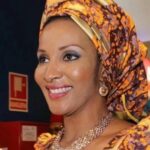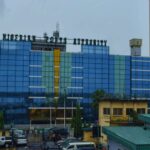
Last Friday was remarkable in the annals of the Nigerian legislature as the Eighth National Assembly marked the second anniversary of its advent having been inaugurated on June 9th 2015. The unprecedented event featured separate sessions by the Nigerian Senate and House of Representatives, during which stirring accolades were rightly accorded their legislative enterprise, in the past two years. As expected Senate President Bukola Saraki presided over the Red Chamber while Yakubu Dogara held fort in the Green Chamber. Also in attendance were some of the former presiding officers – the most iconic being Dr Joseph Wayas, the first elected President of the Nigerian Senate and pioneer Senate President, having served in that capacity in the First National Assembly under the Presidential system of government, when it took off in 1979. Before Wayas’ time, the Nigerian legislature was an offshoot of the British Westminster system and his predecessor Dr Nnamdi Aikiwe was appointed by the Queen of England, Queen Elizabeth The Second.
Other past presiding officers of the Senate were Senators Dr Iyorchia Ayu and Ebute Ameh while the House hosted its former Speaker, Honourable Ghali Na’aba. Also gracing the occasion was a galaxy of past legislators comprising past Senators and Honourable Members along with state Houses of Assembly counterparts. Not the least were the former Clerks to the National Assembly – notably Alhaji Ibrahim Salim, Alhaji Nasiru Arab and the immediate past one – Alhaji Salisu Maikasuwa. To describe the dispensation as colourful and historic remains an understatement, as it also provided hope that in spite of the imperfections of the Nigerian political system, the promise that the nation’s legislature holds the key to a better Nigeria, is guaranteed.
However beyond the novelty, beauty and pageantry of the gathering remains the nagging problem of escalating dissatisfaction by several Nigerians and in particular the younger generation in different parts of the country, as expressed in latent and manifest forms of separatist agendas. Among these is the issue of Biafra and the rather redoubtable shadow it throws over the future of this great country Nigeria; especially with the recent upsurge in the clamour for its actualisation and associated fallouts.
At the risk of dragging the country back to the basics, it needs to be asked what in real terms are all the aggrieved agitators fighting for. From the insurgency in the North East to the struggle for resource control in the Niger Delta and the Biafra issue in the South East, they are all featuring heightened levels of anger with the status quo in the country, and collectively send a strong signal that the time may have come, to let go of whatever reservations that ‘justify’ a ban on the negotiation of the inviolability of the physical boundaries of the Nigerian federation. The wisdom behind this brainwave remains the cliché that whenever change has become due, whoever prevents its peaceful course, makes violent change inevitable.
Seen in context, a major propellant for the convergence of the present grievances and consolidation of same into a common – ‘Split-Nigeria Agenda’, is the perceived lack of traction towards progress, in many aspects of the country’s fortunes as it marches into the future. The grievances of the youth have been serially expressed in several albeit worrisome statements with some deriving from the warped mentorship of their very elders. Typical expressions of worry include the reference to Nigeria as “a company not a country”; “a mere British colonial experiment”; and “a fraud”. Juxtaposing these rather uninspiring expressions against the ennobling lyrics of the National Anthem, the former seems to be sailing with the extremely aggrieved youthful members of the Nigerian society. And this is where the crux of the matter lies.
With the benefit of technological advancement and the new level of political awareness at their disposal, the youth of this country are no more to be taken for granted as bereft of the potency to restructure the country, perhaps in ways that may prove strange to the older generations. This is just as the country may witness more playouts of the capacity of the youth to easily conjure from their unprecedentedly rich world-views, any argument no matter how ‘outlandish’ it may be, to justify their enterprise in remoulding the country. After all this as some of them often and rightly claim, is their time.
Nevertheless, from the daily run of events in the country, it is not in doubt that a large cross-section of this nation’s youth and their leaders, are not versed in the true history of the country. Hence the messages they share with their teeming colleagues and followers often prove to be flawed and deficient in content as well as context. That is why the starting point for the resolution of the current nationwide flashes of dissension and unrest remains the challenge of reorientation of the youth towards a new ‘Nigerianness’, that captures the dreams of the pioneers as well as the provisions of the country’s Constitution whereby (courtesy of Senator Dino Melaye), “what is good for Chidi is also good for Usman as well as Bola”. And this can only be achieved in the context of a national conversation as is championed by the country’s legislative establishment.
During the topical Nigerian Civil War of 1967 – 1970, the slogan of the Nigerian side was “To keep Nigeria one is a task that must be done”. And in order to sustain a romantic appeal for the pre-war, war-time and post-war administration of General Yakubu Gowon, the word ‘GOWON’ was adopted as the acronym for the slogan “Go on with one Nigeria”. When the war ended and he pronounced his three ‘Rs’ therapy representing ‘Rehabilitation, Reconstruction and Reintegration’ for restoring the country, his exploits in government were hailed to high heavens.
Yet as later day developments have proved, Gowon’s success in keeping the country as one was rather limited to the integrity of her geographical boundaries. The bigger task of blending the country’s legion of constituent ethnic groups into one hybrid dispensation with a shared sense of common destiny remained unsolved up till today. And it is such a failure by successive leaders that is spawning the growing numbers of dissenting groups, with the Biafra matter as the high-point.
In the present circumstances, it offers no useful dividend for the country’s leadership community to remain in the comfort zone of assumed inviolability of the country’s boundaries and expect that the call for restructuring shall die a natural death. It will not. Hence the imperative to present on the table for elaborate deliberations, the complement of grievances across the country in which category the Biafra matter falls, in order that the salient points for and against any of such issues be illuminated adequately. That is the only way to demonstrate that every part of the country needs the other parts to survive.
After all why should any patriotic Nigerian be scared of debating Biafra and any other disturbing issue, given their linkage for good or bad, with the future of the Nigerian nation?
 Join Daily Trust WhatsApp Community For Quick Access To News and Happenings Around You.
Join Daily Trust WhatsApp Community For Quick Access To News and Happenings Around You.


